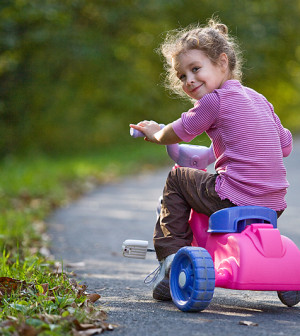Don't Miss
- The Best Time of Day to Drink Bone Broth to Maximize Health Benefits
- 8 Ways to Increase Dopamine Naturally
- 7 Best Breads for Maintaining Stable Blood Sugar
- Gelatin vs. Collagen: Which is Best for Skin, Nails, and Joints?
- The Long-Term Effects of Daily Turmeric Supplements on Liver Health
- Could Your Grocery Store Meat Be Causing Recurring UTIs?
- Are You Making This Expensive Thermostat Error This Winter?
- Recognizing the Signs of Hypothyroidism
- 10 Strategies to Overcome Insomnia
- Could Artificial Sweeteners Be Aging the Brain Faster?
Health Tip: Talk to Kids About Strangers
By LadyLively on April 4, 2014


It’s important to teach children about personal safety and dealing with strangers in a way that is informative but not frightening.
The University of Michigan Health System offers these tips:
- Instead of talking in generalities, such as telling a child never to talk to a stranger, be more specific. If a child is lost and needs help, the child should understand exactly what to do.
- Explain that the child should never accept anything from a stranger.
- Teach a child to never go near a stranger’s car, even for a split second.
- Explain to the child to never offer an adult help, such as in finding a pet.
- A stranger should never be allowed to take a child’s picture.
- Even if a stranger knows the child’s name, it does not mean the person is to be trusted.
- Explain that even people that a child recognizes, such as the mail carrier or newspaper deliverer, are still to be treated as strangers.
- A child should never go with someone who says he is a police officer and shows a badge.
Source: HealthDay
Copyright © 2026 HealthDay. All rights reserved.










